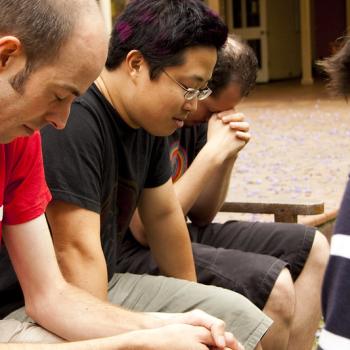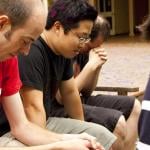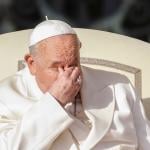The Pope has died. Illinois Bill Would Restrict Homeschooling. And Poland’s Per Capita Economy to Surpass Japan’s.
The Pope Has Died
Pope Francis has died. The 88-year-old head of the Roman Catholic Church died this morning at 7:35 a.m. Italian time, 1:35 a.m. Eastern Standard Time.
After nine days of mourning, a conclave of the world’s cardinals will meet in Rome to elect a new pope. The 115 cardinals qualified to serve as electors will start casting their ballots until one candidate receives two-thirds of the vote.
The big question: Will the new pontiff continue Francis’s liberalizing ways or be part of the traditionalist revival in which today’s church is showing its most growth?
Go here for the eight leading candidates, according to Vatican observers.
Illinois Bill Would Restrict Homeschooling
The state of Illinois is considering a bill that would severely regulate homeschoolers at the threat of jail time. Some of the provisions also would also affect private Christian schools.
Here is a summary of what the bill, currently before the state legislature, would do. Referring to the required state registration of both private schools and home schools, Roy S. Askins and Molly Lackey report in the LCMS Reporter:
This registration requires of the school, among other things, “assurances of compliance … with federal and State laws regarding health examination and immunization, attendance, length of term, and nondiscrimination.” It also includes a provision for curriculum review of the school by the local education board. . . .
If passed, the Homeschool Act would require all homeschooled children in the state of Illinois to be registered with the public school district in which they reside. Parents would be required to provide documentation that includes the child’s name, date of birth, grade, home address and parent or guardian’s name and address.
The bill states that the purpose of the documentation and reporting is to track the number of homeschooled children in Illinois, as well as to “reduce vulnerabilities to abuse and neglect” and ensure that children “receive a safe and sufficient education.” Furthermore, the “homeschool administrator” (the parent or guardian teaching the child at home) would be mandated to annually document and submit a list of curricula used, examples of learning materials used or developed by the child, and the parent or guardian’s assessment of the child’s academic progress.
Failure to comply will result in the child being considered truant, with attendant penalties and fines.
The penalty for truancy is 30 days in jail, plus a $500 fine, with repeated incidents leading to removal of the child from the home.
The bill is currently stalled in the statehouse, but its sponsor says it is “very much alive.”
The proposal has drawn a great deal of opposition. That includes, significantly, black families who have long been the victims of public schools. Molly Parker and Beth Hudsdorfer of Capitol News Illinois quote a black pastor who testified against the measure:
“I am here today as somebody who grew up in Chicago public schools,” [Rev. Chris] Butler said. “I am here today sitting next to somebody who taught in Chicago’s public schools. And we too have grown up, and we too have something to say about the education that we received, and it is why people in our generation have stepped up and said, we must do something different.”
He argued that any regulation would impede minority families from homeschooling to escape failing public schools.
For updates check with the Homeschool Legal Defense Association.
Poland’s Per Capita Economy to Surpass Japan’s
Back in the 1980s, Japan was hailed for its industrial policies and its corporate management, becoming the model that the rest of the world, including U.S. business schools, yearned to emulate. But in the 1990s, the Japanese economy began to slide, due to debt, deficits, bubbles, and government intervention.
Though Japan still has the world’s 4th largest economy by Gross Domestic Product, after the U.S., China, and Germany, its per capita GDP, that is the share of that wealth by person has been going down.
By 2026, Japan will be surpassed in that category by Poland! Formerly under the heel of Soviet Communism, Poland went all in for free market capitalism. Dominic Pino gives the numbers:
Poland’s GDP per capita was $12,810 in 1990. That was roughly the same as Brazil’s and over $4,000 behind Mexico’s. Japan’s was almost three times higher, at $35,306. In 2023, the most recent year with available data, Japan’s was $45,949 and Poland’s was less than $2,500 behind, at $43,585. A gap of over $30,000 per person, gone in one generation. According to the IMF, Japan’s economy slightly contracted in 2024, and projected growth is around 1 percent in 2025 and 2026. Poland grew at nearly 3 percent in 2024, and projected growth is greater than 3 percent in 2025 and 2026.
Pino credits the leadership of economist Leszek Balcerowicz for the new democracy’s decision to unleash the free market, as opposed to the government-driven “industrial policy” route that Japan chose and that the U.S. is now playing around with.
Concludes Pino,
As late as the early 1990s, it was still fashionable to believe that Japan was going to inherit the earth as a result of its industrial policy. Imagine explaining to someone then that in your lifetime the average Pole would become wealthier than the average Japanese. Be skeptical of industrial policies, and never underestimate the power of markets.
The United States could learn from Poland.


















